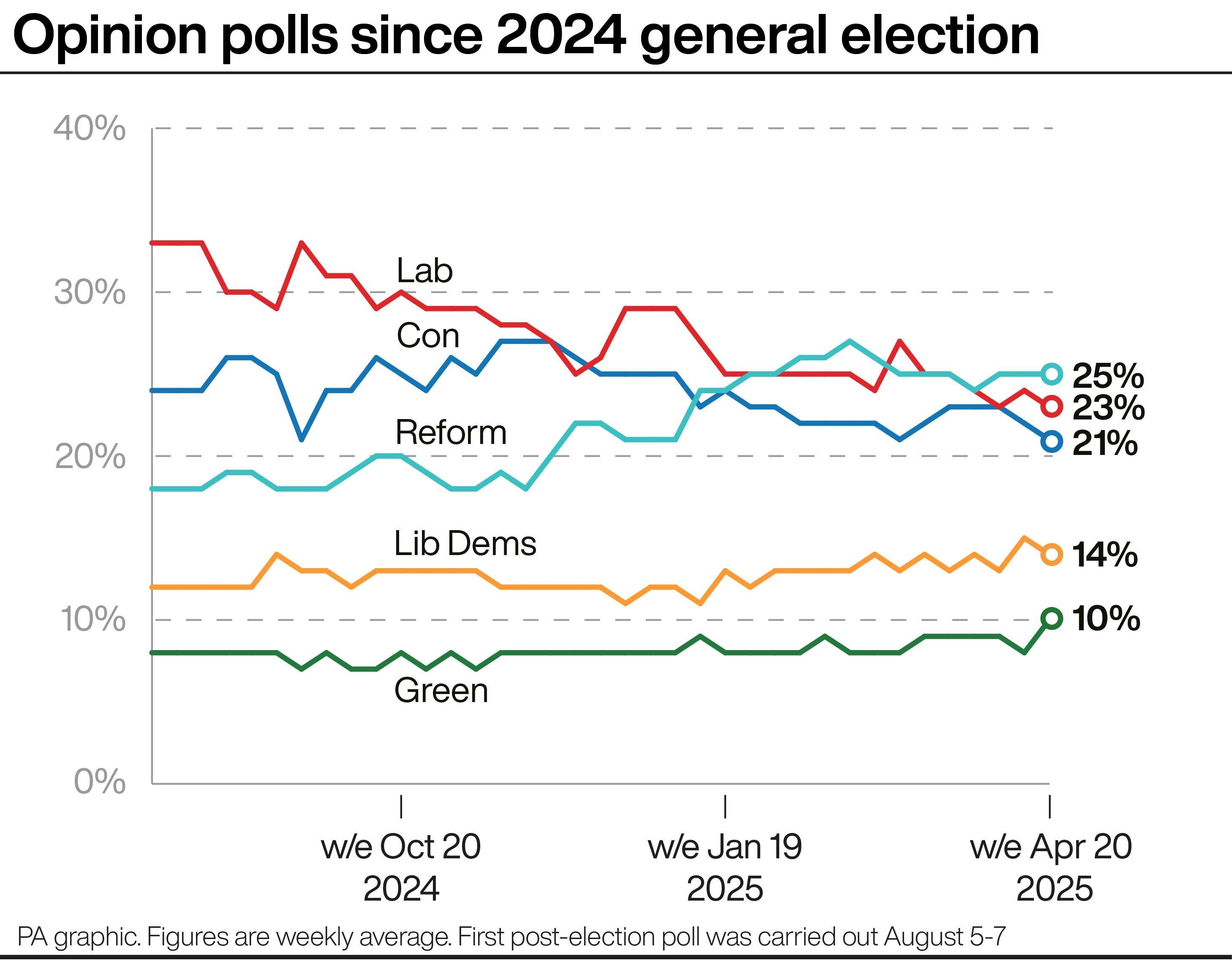
Leaders of the parties standing in the 1 May local elections will be heading into the contests conscious that opinion polls are reflecting an unsettled public mood.
Almost every week since Labour won the general election in July 2024, polls measuring national voting intention have been carried out. There have been some significant changes in just those nine months.
The polls first suggested Labour was holding steady at 30 per cent of support or just above, with the Conservatives in second place at around 25 per cent and Reform in third place at just below 20 per cent.
But since late autumn 2024, two clear trends have been under way.

The first is a slow drop in support for Labour, which dipped below 30 per cent in November then continued to fall to its current weekly average of between 23 per cent and 25 per cent.
The other trend is an increase in support for Reform, which climbed above 20 per cent in December and then rose further, to reach its present weekly average of between 24 per cent and 25 per cent.
At the same time, there appears to have been a slight drop in support for the Conservatives, with the party now tending to score closer to 20 per cent than 25 per cent.
An average of polls with fieldwork completed during the seven days to April 20 puts Reform on 25 per cent, Labour on 23 per cent, the Tories on 21 per cent, the Liberal Democrats on 14 per cent and the Greens on 10 per cent.
Six months earlier, in the week to October 20 2024, the averages were Labour 30 per cent, Conservatives 25 per cent, Reform 20 per cent, Lib Dems 13 per cent and Greens 8 per cent.
Opinion polls are snapshots of the prevailing national public mood, not projections or forecasts.
They also offer only a limited guide to what may or may not happen in local elections.
Some 1,641 council seats in England are up for grabs on May 1 across 23 local authorities.
Elections are also taking place for four regional mayors and two local mayors, while voters in the constituency of Runcorn & Helsby will choose a new MP.
Local and mayoral contests can reflect voters’ attitudes about neighbourhood concerns, such as when bins are collected, the state of parks and pavements, or access to libraries and hospitals.
But they can also be a verdict on how parties and leaders are handling national issues – which this year could mean the NHS, the cost of living, or even foreign affairs such as tariffs introduced by US President Donald Trump and the conflicts in Ukraine or the Middle East.
No scheduled elections are taking place on May 1 in Scotland, Wales or Northern Ireland.
It is nonetheless the first big test at the ballot box for political parties since Sir Keir Starmer became Prime Minister and since Kemi Badenoch took over as Conservative leader.
Reform’s rise in support in the national opinion polls suggests the party has some momentum ahead of May 1.
But local factors, combined with an unpredictable turnout and fierce competition from other parties, including independent candidates, make the outcome of this year’s elections harder than usual to predict.
All poll averages have been calculated by the PA news agency and are based on polls published by BMG, Deltapoll, FindOutNow, More in Common, Opinium, Survation, TechneUK and YouGov.







